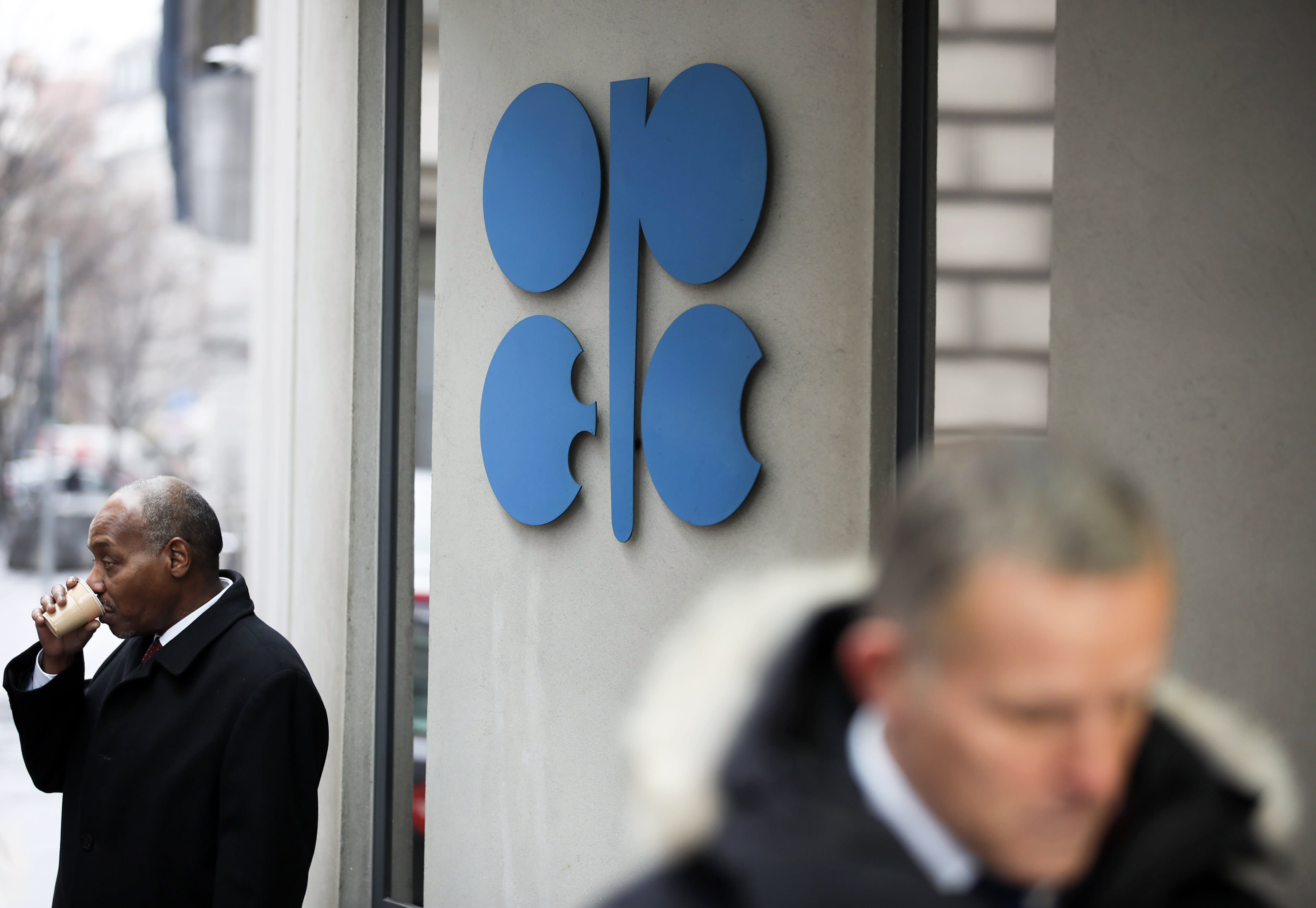
OPEC and its oil-producing allies agreed on Saturday to extend the group’s historic production cut for an additional month in an ongoing effort to balance the global oil market. The agreement was finalized during the group’s video-conference meeting.
“Today we have grounds to be cautiously optimistic about the future, but we are not out of the woods yet and challenges ahead remain to be seen,” Saudi Arabia’s Energy Minister Prince Abdulaziz bin Salman said in opening remarks as the OPEC+ meeting began. He urged the group to display unity and come to a swift decision.
“Together we are stronger, together we can restore stability to oil markets and help rebuild the global economy,” he said.
Beginning on May 1, the alliance cut production by 9.7 million barrels per day. The cuts were initially supposed to begin declining on July 1.
Now, July’s production cut will be 9.6 million bpd after Mexico, which accounts for 100,000 bpd, said it remained committed to the group’s prior agreement.
The cuts will be reviewed on a monthly basis, with the next meeting slated for June 18.
One ongoing issue for OPEC+ has been nations not abiding by their prescribed quotas, and Saturday’s agreement is contingent upon greater levels of compliance. Nations that have failed to curb output by their allocated amount must enact additional cuts in July, August and September in order to make up for non-compliance in May and June.
“Effective compliance is vital if we are to secure the hard won stability in the global oil market and restore confidence in the unity and effectiveness of the entire group,” said Prince Abdulaziz bin Salman.
Ahead of the meeting, the oil market displayed optimism over an agreement. On Friday West Texas Intermediate jumped 5.72% to settle at $39.55, while international benchmark Brent crude gained 5.78% to settle at $42.30. It was each contract’s sixth straight week of gains, and the highest settle since March 6.
“Today’s deal is a positive development and, unless a second Covid-19 wave hits the world, it will be the backbone of a quick recovery for the energy industry,” said Bjornar Tonhaugen, Rystad Energy’s head of oil markets. “That is due to the oil stocks decrease that we will see as a result of the production deficit. Stocks are now what keep prices at relatively low levels and the quicker they fall, the faster we will see prices rise.”
Iraq is among the oil-dependent nations that has struggled to maintain reduced output. As Saturday’s meeting got underway Assem Jihad, Iraq’s Ministry of Oil spokesperson, said in a statement that “despite the economic and financial circumstances that Iraq is facing, the country remains committed to the agreement.”
Under the prior agreement, which was set during an extraordinary multi-day meeting in April, the 23-member group began curbing production by 9.7 million bpd on May 1, which was slated to extend through the end of June. The cuts would then begin to taper. From July through the end of 2020, 7.7 million bpd would be taken offline, followed by 5.8 million bpd from January 2021 through April 2022.
The cut — the largest in history — came as oil demand fell off a cliff due to the coronavirus pandemic. The International Energy Agency estimates that about one quarter of demand was sapped in April as billions of people around the world stayed home in an effort to slow the spread of Covid-19. The hit to demand came as producers continued to pump oil, which sent WTI tumbling into negative territory for the first time on record, while Brent fell to a 20-year low.
Since then, prices have steadily climbed higher as economies begin to reopen and as producers further rein in output. In the U.S., production has fallen from a record 13.1 million bpd in March to 11.2 million bpd, according to the U.S. Energy Information Administration. WTI is still about 40% below its January high of $65.65, however.
“Although small in scale, this cut is however important in squaring the group’s strategy, which has this year alone swung from price focused cuts, to market-share recapture, to internal price war to finally a record large cut,” Goldman Sachs’ Damien Courvalin wrote in a note to clients Friday.
The closely watched meeting was initially scheduled for June 9-10.
– CNBC’s Brian Sullivan and Michael Bloom contributed reporting.



